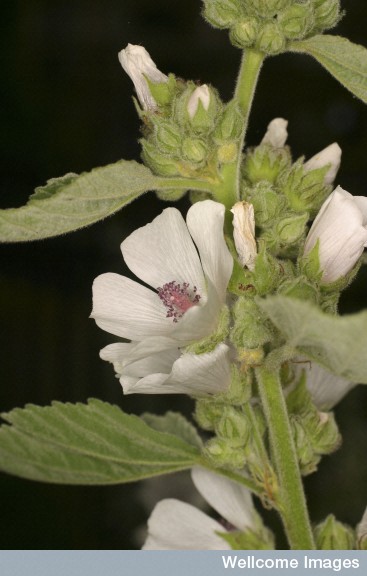
I must confess the title is perhaps a little bit ‘click bait’ in style. This post is sadly not about the soft pink and white sugary treats we are all familiar with, but about the plant marsh mallow, and its supposed medicinal qualities; although originally it was the mucilage from the roots of this plant that was used to make the confectionery marshmallow. It is a plant that appears frequently in early modern medical texts, and, of course, botanical works.
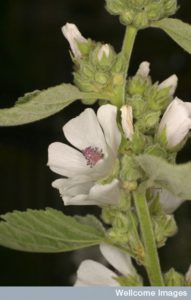
According to John Gerard (born c. 1545 – d. 1612) a herbalist who worked with the barber-surgeons guild and who wrote the massive tome The Herball, or, Generall Historie of Plants (published in 1597), marsh mallows were a ‘certaine kind’ of wild mallow, that had broad, soft white leaves, emanating from round straight stalks that grew three or four feet high.1 The plant was topped by white flowers (which distinguished it from the wild mallow, whose flowers were red).
Gerard recorded in his book that the marshmallow had many medicine properties. The leaves were, he said, useful for easing pain, mixed into poultices and placed on the side of the body they could be used to ease the pain of kidney and bladder stones. Robert Turner’s botanical book explained that the slimy nature of the plant meant that it made the passages slippery allowing the stones easier passage out of the body.2 Turner also claimed they were good for all diseases of the breast and lungs including coughs, hoarseness and pleurisy.
A decoction (a concentrated liquor resulting from heating or boiling a substance) of the roots taken as a drink helped the bloody flux (bloody diarrhoea) and helped expel kidney stones from the body. It was also good for sciatica, cramps and convulsions. The seeds dried and beaten into a powder and added to someone’s drink would help with all diarrhoea and issues of blood.3
It is clear that people were prescribed marsh mallows for this purpose as well. A letter sent to royal physician Sit Hans Sloane suggests that drinking marsh mallow tea had helped one man over come a bout of bloody urine:
SirYou have given me leave to acquaint you with ye success of what you prescribed ___ I have ever since last Sunday seven night taken regularly three times a day the Electuary and the marsh-mallows tea which you ordered. I continued to void blood with my urine whilst I was in London and after my return hither till Friday when I had a stoppage for 8 or 9 hours: Since which time I have seen no blood, but days ago a very little; when it looked like a bit of string about an inch long. the pain and heat I felt in my back are in a manner gone: and were it not for ye unusual heaviness and head ache and a sort of load in my back I still feel now and then, I should think myself quiet well. … Your much obliged humble servant Pr Feuillerade. 4
Sloane was not the only one prescribing marshmallows, Richard Wilkes the Stafford physician noted that Reverend William Cleveland of Worcester had advised a poor woman troubled with the stone that she should drink tea made of marshmallows, and that having done so a stone ‘2 ounces in weight’ passed from her. She gave the stone to the Reverend who then showed it to his brother John.5
Similar recipes are found in manuscript collections as well. One seventeenth-book contains instructions to make ‘A fomentation (or poultice) made wth marsh mallow Roots lilly Roots of Mallows, violetts pellitory of ye Wall, Annisseed & Fenugreek seed’. While another contained the details of a conserve of marsh mallows to ease bleeding kidneys (although intriguingly the conserve appears to be made on plantain, which you can see in the image below, rather than marsh mallow)

Reference
MS8086
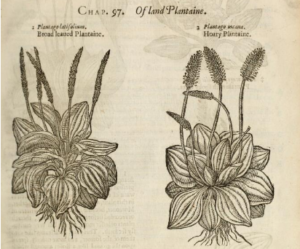
________
1. John Gerard, The Herball, or, Generall Historie of Plants (London, 1633), p. 932.
2. Robert Turner, Botanologia (London, 1664), p. 192.
3. Gerard, p. 935.
4.British Library Sloane 4046, fol. 323. Spellings have been modernised in this extract.
5. Wellcome Library MS 5006, p.162
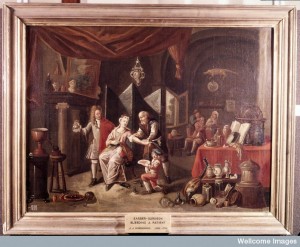
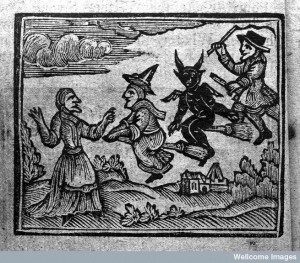
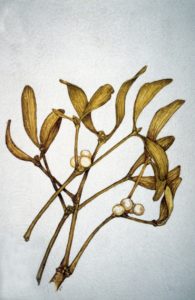
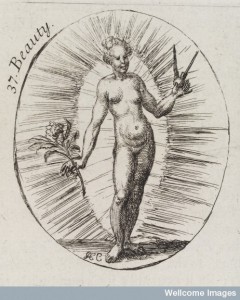
One thought on “Medicinal Marsh Mallows”
Comments are closed.